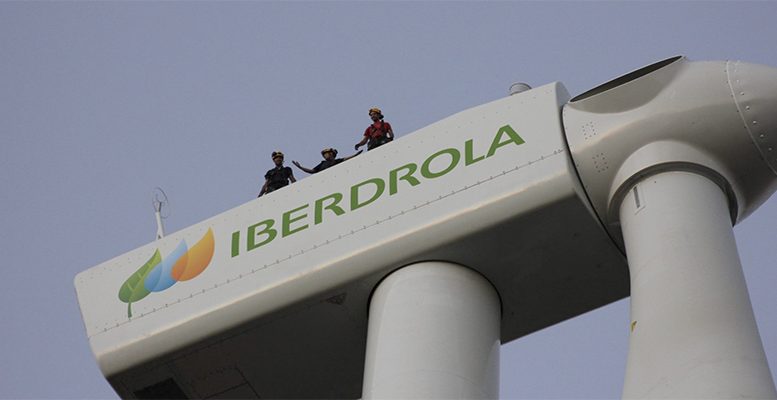In the first nine months of 2018, Iberdrola’s net profits amounted to 2.09 billion euros, 13.5% less than in the first nine months of 2017. However, it should be pointed out that Iberdrola’s results in 2017 included extraordinary positive impacts of 759 million euros, corresponding to the merger of Siemens and Gamesa and the gains generated by the reorganisation of Neoenergia in Brazil.
Thus, the group’s net ordinary profits, excluding extraordinary incomes, amounted to 2.05 billion euros in the first nine months of 2018, 38% more than in the same period of last year. Iberdrola reiterated during the results presentation on Wednesday its commitment to close 2018 with net profits above 3 billion euros. The consensus among analysts currently contemplates net profits for the whole of 2018 of 2.96 billion euros, much in line with the company’s estimates.
The interim dividend per share for the 2018 results increases 7.1% (to 0.15€ per share), while the complementary dividend per share will be announced in February 2019.
Iberdrola’s view of “windfall profits”
The government wants to introduce changes in the marginalist system for the formation of prices in the Spanish electricity pool. Under this scheme, the last unit of supply which enter the market and covers the demand sets the price for all the rest. If there is high demand, the gas generation plants have to operate, which are more expensive, and set the price for all those units of supply that have entered the market earlier. Modifying this system could have a negative impact on Iberdrola, which has hydroelectric and nuclear assets in Spain. For that reason, Ignacio Galán, chairman of Iberdrola, also explained in the press conference his point of view on the excess returns from hydroelectric and nuclear generation in Spain, the so-called windfall profits.
Galán focused on two points. Firstly, in his opinion, it is not true that these assets are completely amortised. In the 2017 balances, the value of hydroelectric plants on Iberdrola’s books reached 4.8 billion euros and that of nuclear plants 3.2 billion euros. Moreover, he underlined that in recent years they have invested between 1.8 2 billion euros in equipment for these technologies.
Secondly, many of these assets generate losses for the group. The nuclear plants are subject to high taxation and make losses. The hydroelectric plants also reported poor results last year, due to low rainfall levels.
Anayway, the international diversification of the group would allow it to mitigate the impact in the group’s accounts.
Sector analysts at Morgan Stanley point that Iberdrola’s share value is discounted -8% compared to comparable companies and yet has a 5.5% dividend and is growing at twice the rate of the sector as a whole. Their estimates are 2-6% above the consensus.
We expect it will grow at +28% in 2018 thanks the recovery of hydro an 22% over 2016 despite the negative effect of currency variation and regulatory changes in the UK and Spain. We expect that a clearer regulatory environment in Spain and the review of long term objective on 19 February 2019 will serve as catalysts.





